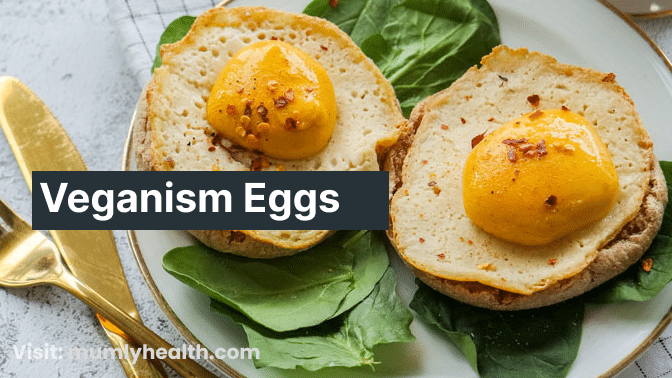In the realm of veganism, a topic that has sparked significant debate and discussion is the consumption of eggs. Traditionally, eggs have been considered off-limits for those adhering to a vegan lifestyle due to ethical concerns surrounding the egg industry.
However, in recent years, a subset of vegans has emerged who choose to include eggs in their diet. This article delves into the reasons why some vegans have made this controversial dietary shift, exploring various viewpoints and examining the implications for both individuals and the vegan movement as a whole.
The Ethical Conundrum: Rethinking the Role of Eggs in Veganism
The Vegan Ethic: Animal Rights and Welfare
Veganism, at its core, is rooted in a commitment to animal rights and the avoidance of animal exploitation. The egg industry has long been criticized for its practices, including the confinement of hens in battery cages and the mass culling of male chicks. These practices directly contradict the principles of compassion and respect for animal welfare that form the foundation of veganism.
Regenerative Agriculture: A New Perspective
However, proponents of consuming eggs within a vegan diet argue that not all egg production systems are created equal. They point to regenerative agriculture practices, where hens are raised on small-scale farms that prioritize animal welfare and environmental sustainability.
In these systems, hens are allowed to roam freely, exhibit natural behaviors, and are integrated into a holistic farming approach. Some vegans who support regenerative agriculture believe that consuming eggs from such farms can align with their ethical values while supporting positive change in the agricultural industry.
Read also: Impact of Environmental Factors on Ovarian Health
Nutritional Considerations: Eggs as a Nutrient-Dense Food
The Nutrient Powerhouse: Egg’s Nutritional Profile
Eggs have long been recognized for their impressive nutritional composition. They are a rich source of high-quality protein, essential amino acids, vitamins (including B12, D, and choline), and minerals (such as selenium and iron). This nutrient density has led some vegans to consider eggs as a valuable addition to their diet, particularly for individuals who struggle to meet their nutritional needs solely through plant-based sources.
Bridging Nutritional Gaps: Addressing Deficiencies
While a well-planned vegan diet can provide adequate nutrition, certain nutrients, such as vitamin B12, can be challenging to obtain solely from plant-based sources.
Eggs offer a natural source of this essential nutrient, which is vital for nerve function, red blood cell production, and DNA synthesis. Some vegans opt to include eggs to bridge potential nutritional gaps and ensure a well-rounded intake of essential nutrients.
Read also: Naturally Deworming Chickens
The Evolution of Veganism: A Personal Choice
Expanding the Definition: Individual Interpretations
Veganism, as a philosophy and lifestyle, has evolved. With a growing emphasis on inclusivity, some individuals interpret veganism as a flexible concept that allows for personal choices and tailored approaches to ethical eating. This viewpoint asserts that consuming ethically sourced eggs can still be aligned with the broader vegan values of compassion and sustainability, depending on the individual’s priorities and beliefs.
The Pragmatic Approach: Maximizing Impact
Another perspective held by some vegans who incorporate eggs into their diet is centered around pragmatism. They argue that by being less dogmatic and more flexible in their dietary choices, they can have a greater impact on reducing overall animal suffering. These individuals believe that supporting small-scale, ethical egg producers can promote positive change within the agricultural industry, encouraging the adoption of more humane practices.
FAQs About Veganism Eggs
- Q: Can vegans who consume eggs still consider themselves vegans? A: The definition of veganism can vary among individuals and communities. While some believe that consuming eggs inherently contradicts vegan principles, others argue that personal interpretations and ethical choices can allow for flexibility within the vegan lifestyle.
- Q: Are there specific guidelines for ethically sourcing eggs as a vegan? A: Ethical egg consumption within veganism often revolves around supporting regenerative agriculture practices and small-scale farms that prioritize animal welfare. However, there are no universally agreed-upon guidelines, and individuals need to research and make informed choices based on their values.
- Q: Can consuming eggs from backyard chickens be considered vegan? A: The vegan perspective on consuming eggs from backyard chickens can differ. Some vegans argue that as long as the chickens are well-cared for and not exploited, their eggs can be ethically consumed. However, others maintain that any form of egg consumption violates animal rights.
- Q: Are there alternative sources of nutrients for vegans who choose not to eat eggs? A: Absolutely! A well-planned vegan diet can provide all the necessary nutrients through a diverse range of plant-based foods. For example, vitamin B12 can be obtained through fortified plant-based products or supplements.
- Q: How can vegans who consume eggs advocate for animal rights? A: Vegans who consume eggs often advocate for animal rights by supporting local and sustainable farming practices, promoting transparency in the egg industry, and actively engaging in discussions about ethical food production.
- Q: Are there any organizations or certifications that endorse ethical egg production? A: Several organizations, such as Certified Humane and Animal Welfare Approved, offer certifications for ethical egg production. These certifications aim to ensure that hens are raised in humane conditions that prioritize their welfare.
Conclusion
In the ever-evolving landscape of veganism, the inclusion of eggs has become a topic of contention and personal choice. While the traditional view holds that veganism strictly excludes eggs due to ethical concerns, some individuals argue for a more nuanced approach that considers regenerative agriculture, nutritional benefits, and pragmatic impact.
As the vegan movement continues to evolve, it is crucial to engage in respectful dialogue, understand different perspectives, and collectively work toward a more compassionate and sustainable world for all living beings.
